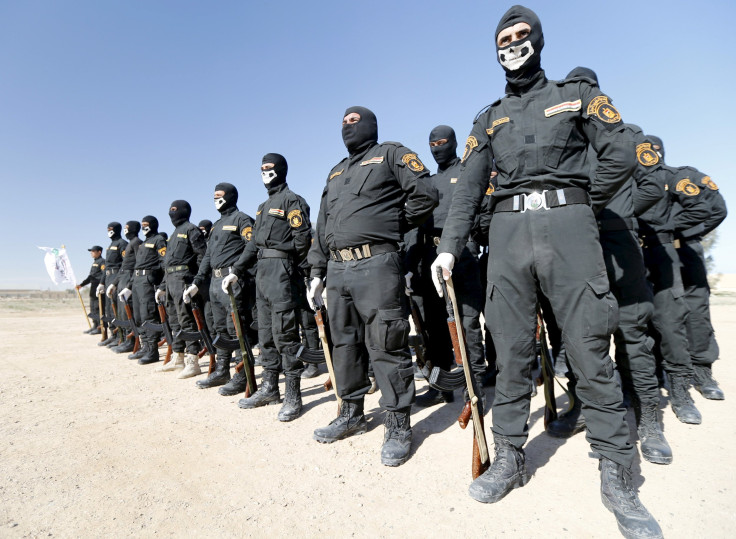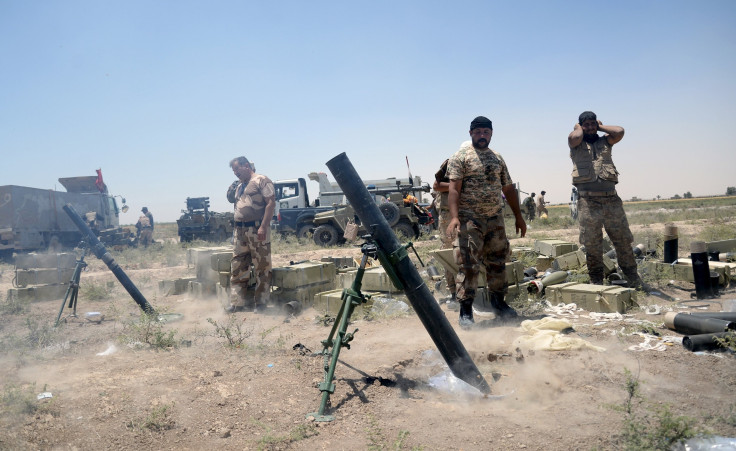ISIS Holds On In Fallujah, Captures Anbar Sunni Tribesmen Fighting Militant Group

Sunni tribesmen in Iraq’s western Anbar province are renewing their efforts to defeat the Islamic State group in Fallujah, but a lack of weapons and ammunition, as well as international support, is limiting the group’s success there. As a result of the uprising, the Islamic State group, also known as ISIS, captured more than 100 people from local tribes who enlisted to fight the group.
The tribal fighters launched an offensive Saturday — the first in months — but were unable to rout the militant group from its outposts. Tribal leaders warned that if their fighters did not receive the weapons needed to fight ISIS, hundreds of people would die.
The battle for Fallujah has been ongoing for more than a year but took a new turn after the Iraqi security forces liberated Ramadi earlier this year and vowed to also retake Fallujah. So far, though, ISIS has maintained its ground in the city located 40 miles outside Baghdad, the capital. Thousands of people are still living in the besieged city, and many report they are being starved by ISIS.
“We are receiving reports of hunger and shortages of medicines and essential supplies. We know that people are trying to leave the city but are prevented from doing so; we fear that the situation is becoming desperate,” Lise Grande, the UN’s humanitarian coordinator for Iraq, said in a statement Monday. “As humanitarians, we have a common responsibility to save lives.”
The terrorist group is also killing civilians in the city who do not support them, according to the Pentagon.

The battle for Fallujah is part of the Iraqi military’s larger operation to regain control of the vast western Anbar province, which is governed predominantly by Sunni tribes, some with direct connections to the Gulf states. ISIS took over large swaths of land throughout the province in 2014 because most of the militant group’s recruits resided there.
The U.S. tried to implement a similar strategy against ISIS as it did against insurgents in 2007 with the “Sunni Awakening,” and enlisted tribal leaders to lead the fight against the Sunni militant group using American weapons. But that strategy fell apart because the weapons the U.S. promised never made it into the hands of the tribes in Anbar, leaders told International Business Times earlier this year. The Iraqi army, its new Sunni recruits and their American military advisers are stationed at a training base in Habbaniyah, a town between Ramadi and Fallujah.
The other major setback for the U.S. and Iraqi security forces: Some of the Sunni tribesmen in Anbar were colluding with the militant group. ISIS forged alliances with some of the tribal leaders, enabling the group to entrench itself in the community and operate with immunity. The tribal leaders provide ISIS with intelligence, cash and weapons that help it stave off U.S.-backed Iraqi military forces and ensure the group retains the upper hand in battle. Many leaders have formally pledged allegiance to the militant group.
“The reason why ISIS gained a lot of ground and control in Anbar province is because the Anbari people have welcomed ISIS and embraced them,” Majid Hussein, a political analyst based in Erbil in Iraqi Kurdistan, told IBT a year ago. Tribal forces are losing the fight in Anbar because “at least 70 percent” are either fighting for the militant group or support it, according to Hussein.
The support for ISIS from the tribes in Anbar does not seem to be waning, either. Tribal leaders take up to $1,000 from civilians who want to leave ISIS-controlled territory and hand it back to the group, local sources told IBT. They also take a large cut for themselves, their family and their tribe.
The support for the militant group could change now that it has captured local tribesmen working against them. The battles between Sunni tribes and ISIS slowed Monday following the mass capture of the tribesmen. It is unclear where they are being held, but the U.S. said it is aware of the situation through social media.
© Copyright IBTimes 2024. All rights reserved.





















